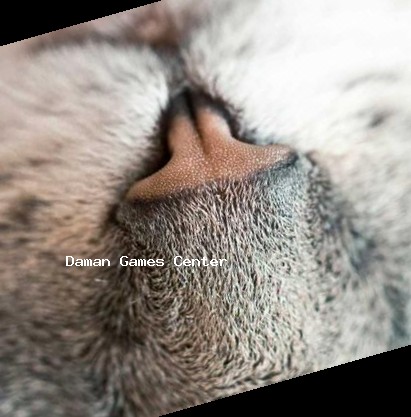Ludo: India's Beloved Board Game
A game that brings families together, transcending age and background in every corner of India

Ludo - A game that has entertained generations of Indians
Ludo is much more than just a board game in India; it's a cultural phenomenon. From small villages to bustling cities, you'll find people of all ages gathered around a Ludo board, laughing, competing, and creating memories.
The game's simplicity combined with elements of strategy and luck makes it perfect for family gatherings, festivals, and even casual get-togethers. In recent years, with the rise of mobile gaming, Ludo has found a new lease of life in digital form, connecting players across the country and beyond.
This comprehensive guide explores everything you need to know about Ludo - its rich history, how to play, its special place in Indian culture, popular variants, and how you can join the millions of Indians who enjoy this game every day.
📜 History of Ludo

The roots of Ludo can be traced back over 1,600 years to ancient India. The game we know today as Ludo has its origins in the traditional Indian game called "Pachisi."
Pachisi, which means "twenty-five" in Sanskrit (referring to the number of squares on the board's central cross), was played on a wooden board with shells as dice and small pieces of wood or stone as playing tokens.
Historical evidence suggests that Pachisi was enjoyed by royalty, with some palaces in India even having large Pachisi boards built into their courtyards, where players would use people as tokens! The Mughal emperors were particularly fond of the game, with Akbar the Great known to play on a giant board using slave girls as pieces.
The game made its way to England in the late 19th century, where it was modified and trademarked as "Ludo" in 1896. The name "Ludo" comes from the Latin word meaning "I play." This simplified version became popular in Britain and eventually made its way back to India, where it quickly gained widespread acceptance.
Over time, Ludo evolved into the simpler version we know today, with standardized rules and board design. However, in India, many regional variations of the original Pachisi still exist alongside the more modern Ludo. These variations often reflect local customs and traditions, making the game even more diverse.
What's fascinating is how this ancient game has adapted to the digital age while retaining its core appeal. From physical boards in every Indian household to mobile apps with millions of downloads, Ludo continues to be a unifying force in Indian society. It's a game that grandparents, parents, and children can all enjoy together, bridging the generation gap through friendly competition.
🎲 How to Play Ludo
One of the reasons for Ludo's enduring popularity is its simplicity. The game is easy to learn but offers enough strategic depth to keep players engaged. Here's how you play, in true Indian style:
Basic Equipment
- A square Ludo board with a cross-shaped play area
- 4 playing tokens for each player (usually in different colors: red, blue, green, yellow)
- A single die (or two dice in some variations)
- 2-4 players (though in India, we often find ways to include more!)

Objective
The goal of Ludo is to move all your tokens from the starting area (called the "home" or "ghar" in Hindi) around the board clockwise and into the finishing area (called the "home stretch" or "manzil") before your opponents do.
Setup
Each player places their 4 tokens in their respective colored starting area. Players decide the order of play, usually by rolling the die - the highest roller goes first. In some Indian households, the youngest player gets to roll first as a sign of respect!
Gameplay
Players take turns in clockwise order. On your turn:
- Roll the die - You must roll a 6 to move a token out of your starting area onto the board. If you roll a 6, you get another turn - which often leads to much celebration in Indian households!
- Move your token - Move one of your tokens clockwise around the board by the number shown on the die. In some family games, you can choose which token to move, adding a strategic element.
- Capture opponents - If you land on a square occupied by an opponent's token, that token is sent back to its starting area. This is called "killing" (maar dena) in Indian Ludo slang and is often accompanied by playful taunting!
- Safe squares - Each player has a safe square (usually marked with their color) where their tokens cannot be captured. The center of the board is also a safe zone, often called the "chowk" (square) in Hindi.
- Home stretch - Once a token has completed a full circuit of the board, it can enter the home stretch (the colored path leading to the finish). You can only move tokens into the home stretch if you roll the exact number needed, which adds to the excitement and tension!
Winning the Game
The first player to move all four of their tokens into the finishing area wins the game. In some Indian households, the game continues to determine 2nd, 3rd, and 4th places as well! The winner is often treated to a small prize, like the first piece of dessert or choosing the next game to play.
These are the basic rules, but many families and regions in India have their own variations that add unique twists to the game, making every Ludo session a little different. Some families have house rules that have been passed down through generations, making their version of Ludo truly one-of-a-kind.
🇮🇳 Ludo in Indian Culture
In India, Ludo is more than just a game - it's a social institution. It transcends barriers of age, class, and education, bringing people together in a way few other activities can. You'll find Ludo boards in almost every Indian home, from the simplest plastic versions to elaborate hand-painted wooden sets passed down through generations.

Family Gatherings
No Indian family gathering is complete without a game of Ludo. Whether it's a wedding, festival, or just a Sunday afternoon, you'll find relatives young and old engaged in friendly (and sometimes fiercely competitive!) Ludo battles. It's a way to bond, share stories, and create lasting memories.

Festivals
During festivals like Diwali, Holi, and Raksha Bandhan, Ludo becomes an integral part of the celebrations. It's a way to bond, create memories, and pass time between feasts and other festivities. Many families have special festival-themed Ludo boards that only come out during these occasions.
Digital Revolution of Ludo in India
While physical Ludo boards remain popular, the digital version has taken India by storm, especially after the 2020 pandemic when people were confined to their homes. Suddenly, Ludo became a way to stay connected with family and friends when in-person meetings weren't possible.
Ludo Download Statistics in India
- Over 500 million downloads of various Ludo apps in India
- Top Ludo apps consistently rank in the Google Play Store's top 10 games
- Daily active users of leading Ludo apps exceed 25 million during peak times
- 92% of Indian mobile gamers have played a Ludo game at least once
- Indian players spend an average of 42 minutes per day playing digital Ludo
- During festival seasons, Ludo app usage in India increases by up to 300%
Player Reviews from Indian Gamers

Ravi Sharma, Delhi
"Ludo is my go-to game when I'm with family. During lockdown, the digital version helped me stay connected with my kids who were studying abroad. We'd play every evening and it felt like we were in the same room! The best part is that everyone knows how to play, from my 70-year-old mother to my 8-year-old niece."

Priya Venkatesan, Chennai
"I love how the Indian versions of Ludo apps have added local themes and festivals. During Pongal, my favorite Ludo app had special Pongal tokens and board designs with kolam patterns. It's these little touches that make the game feel so close to our culture. We have a family group where we play every weekend without fail."

Amit Patel, Mumbai
"We used to play Ludo for hours during college hostel nights. Now that we're all working in different cities, the online multiplayer Ludo has become our way to stay in touch. Every weekend, we have a group game - it's like being back in college! Sometimes we even bet on chai or samosas for the winner when we meet next."
Localized Versions in India
What makes Ludo so special in India is how it has been adapted to local tastes and cultures. Indian developers have created versions that resonate with local players:
Regional Themes
Ludo boards featuring Indian monuments like Taj Mahal, regional art like Madhubani paintings, and cultural symbols from different states. Some apps even let you choose your state's theme!
Festival Events
Special tournaments and events tied to Indian festivals like Diwali, Holi, and Navratri, with limited-edition tokens and prizes that reflect the festival spirit.
Local Languages
Game interfaces in Hindi, Bengali, Tamil, Telugu, Marathi, Gujarati, and other Indian languages, making the game accessible to non-English speakers across India.
Some Indian Ludo variants even incorporate traditional elements like astrological signs or regional deities, making the game more meaningful for local players. For example, in some versions from South India, the safe squares feature images of local gods and goddesses, adding a spiritual dimension to the game.
In many ways, the evolution of Ludo in India mirrors the country's own journey - embracing modernity while staying rooted in tradition, and bringing diverse people together through a shared love for this simple yet captivating game. Whether played on a traditional wooden board or a high-tech mobile app, Ludo remains a beloved part of Indian life.
🔄 Ludo Variants Popular in India
While the basic Ludo rules are consistent across India, different regions and communities have developed their own variations that add unique twists to the game. These variants keep the game fresh and interesting, ensuring that Ludo remains a beloved pastime across the country. Each region puts its own flavor into the game!
Pachisi - The Ancient Ancestor

Pachisi is the grandparent of all Ludo variants. Still popular in many parts of India, especially in rural areas, this traditional version uses 6 or 7 cowrie shells instead of dice. The shells are tossed, and their arrangement determines the number of moves.
The counting works differently too - each shell that lands open counts as 1, with all closed shells counting as 25. This ancient version requires more strategy and is often played on larger boards. In some villages, Pachisi is still played during festivals and special occasions, keeping this ancient tradition alive.
Ludo King - The Digital Sensation

Ludo King took India by storm during the 2020 lockdown, becoming one of the most downloaded apps in the country. This digital variant stays true to traditional Ludo but adds exciting features that have made it incredibly popular among Indian players:
- Online multiplayer with friends and strangers across India
- Private rooms for family games with password protection
- Voice chat during gameplay to recreate the in-person experience
- Various board themes, including Indian festivals and monuments
- Snake and Ladder combination mode, another beloved Indian game
- Daily rewards and challenges that keep players engaged
Satta Ludo
Popular in northern India, especially in Uttar Pradesh and Punjab, Satta Ludo adds a betting element to the game. Players place small bets before starting, with the winner taking the pot. The bets are usually symbolic - maybe a few rupees or a promise to buy the winner chai or samosas.
This variant is often played at festivals and social gatherings, adding an extra layer of excitement to the traditional Ludo gameplay. It's considered a fun way to add stakes without being too serious about winning or losing.
Double Dice Ludo
As the name suggests, this variant uses two dice instead of one, allowing for higher numbers and faster gameplay. It's particularly popular among younger players in cities like Mumbai, Bangalore, and Delhi who prefer a more dynamic version of Ludo that moves quickly.
The rules remain similar, but the two dice add more strategic possibilities and make the game progress more quickly. This variant is often played in colleges and youth gatherings where time is limited but fun is essential!
Regional Variants
Different states in India have developed their own unique takes on Ludo, reflecting local culture and traditions:
- Goti Chaupar (Rajasthan) - Uses stones instead of tokens, played on a simpler board
- Chausar (Uttar Pradesh) - A strategic variant with special squares that offer bonuses
- Dayakattam (South India) - Combines Ludo with strategic blockades and defenses
- Pallanguzhi (Tamil Nadu) - A related game with different mechanics but similar appeal
- Chaupar (North India) - A more complex version with additional rules and strategies
Modern Innovations
Indian game developers continue to innovate, creating new Ludo variants that blend tradition with modern gameplay elements:
- Theme-based Ludo - Boards featuring popular movies, cricket teams, and Bollywood stars
- Speed Ludo - Timed turns for faster gameplay, perfect for short breaks
- Team Ludo - 2 vs 2 gameplay for more social interaction and teamwork
- Tournament Ludo - Structured competitions with prizes and leaderboards
- Power-up Ludo - Special abilities and power-ups that add excitement
💡 Indian Player's Ludo Strategies & Tips
While Ludo involves luck, experienced Indian players know that strategy can make all the difference between winning and losing. Here are some pro tips from India's top Ludo players, passed down through generations of family games:
Token Management
"Don't move all your tokens out at once," advises Vijay, a champion Ludo player from Bangalore. "Keep at least one token safe at home until you have a good position. This prevents you from getting wiped out if luck turns against you."
Experienced players recommend moving tokens in pairs to protect each other and create opportunities for capturing opponents. In Indian households, this is often called "jodi banake khelna" (playing in pairs).
Making the Most of Sixes
"Sixes are powerful but dangerous," says Mumbai-based Ludo enthusiast Anjali. "Use your first six to bring out a token, but subsequent sixes should be used strategically to either capture an opponent or move a token to safety."
Many Indian players believe in "saving" sixes for critical moments, like entering the home stretch or escaping a vulnerable position. In some families, rolling multiple sixes in a row is considered good luck and often met with cheers!

Positioning is Everything
Indian Ludo masters emphasize the importance of board positioning:
- Control the safe squares whenever possible - these are your "fortresses"
- Position tokens to threaten multiple opponents at the same time
- Keep tokens spread out to avoid being wiped out by a single opponent's lucky roll
- Block opponents' paths when you can't capture them - "rokna zaroori hai" (blocking is essential)
- Always have an escape route for your vulnerable tokens
Psychological Tactics
In India, Ludo is as much a mental game as it is about luck and strategy. Here are some psychological tips from seasoned players:
- Stay calm - Don't let bad rolls affect your decision-making, especially when others try to provoke you
- Observe patterns - Notice how opponents play and adapt accordingly; some players are aggressive, others defensive
- Bluff occasionally - Pretend you want to move one token to mislead opponents about your real strategy
- Know when to take risks - Sometimes a bold move can turn the game around, especially in the final stages
- Respect your opponents - Good sportsmanship is part of Indian Ludo culture; congratulate the winner gracefully
- Use distraction - A little friendly banter can make opponents lose focus, but never cross into bad manners
Festival Tournament Strategies
During Indian festivals, Ludo tournaments are common, with small prizes and bragging rights at stake. Here's how to prepare:
- Practice with different variants to be adaptable - you never know which version will be played
- Study your opponents' playing styles if you know who will participate - family members often have predictable patterns
- Develop a balanced strategy that works for both offense and defense - flexibility is key
- Stay focused even during long tournament sessions - festivals involve food and distractions!
- Enjoy the competition - winning is great, but participation is what matters most in Indian festival spirit
- Learn from each game - even losses teach you valuable lessons for the next round
🎉 Ludo Local Events in India
Ludo isn't just played at home in India - it's celebrated through numerous local events and tournaments, especially during festivals and community gatherings. These events bring together Ludo enthusiasts from all walks of life, fostering community spirit and friendly competition.

Diwali Ludo Competitions
During the festival of lights, communities across India organize Ludo tournaments. Prizes range from sweets and small gifts to cash prizes in larger events. These tournaments often take place after puja ceremonies, bringing neighbors together in celebration.

Holi Ludo Parties
After playing with colors, many Indian families gather for casual Ludo games with music and snacks, making it a fun-filled social event. These are usually less competitive and more about enjoying each other's company during the festival.

Village Panchayat Tournaments
In rural India, Ludo tournaments organized by village councils are major events, often drawing participants from neighboring villages. These tournaments can last all day and are a highlight of the village social calendar.
Major Ludo Events in India
National Ludo Championship
Held annually in Delhi, this tournament attracts over 5,000 participants from across India. The grand prize includes a cash award of ₹1,00,000 and a trophy. The event is covered by local media and has become a prestigious competition in the Indian Ludo community.
The championship features multiple rounds, with players competing in both traditional and digital Ludo categories. It's a great platform for showcasing skill and meeting fellow enthusiasts from different parts of the country.
Mumbai Ludo League
A city-wide league with teams representing different neighborhoods. The league runs for 3 months, culminating in a grand final during the Ganesh Chaturthi festival. Matches are played on weekends at community centers and parks across Mumbai.
The Mumbai Ludo League has become so popular that it now has corporate sponsorships and is covered by local media. Winning teams receive the coveted "Ludo Cha Raja" trophy, a playful nod to Mumbai's famous Ganesh idols.
Digital Ludo Events
With the rise of online Ludo, digital events have become increasingly popular in India, especially after the pandemic:
- Online tournaments with participants from across India, often with cash prizes
- Live-streamed Ludo matches with commentary on YouTube and gaming platforms
- Regional digital leagues organized by gaming platforms, with state-level winners
- Charity Ludo events where proceeds go to social causes, especially during festivals
- Inter-college and inter-company Ludo competitions held virtually
- New Year and festival special events with limited-edition in-game items
These events not only celebrate the game of Ludo but also strengthen community bonds and promote healthy competition in true Indian spirit. Whether played in person or online, Ludo events bring people together in a shared love for this timeless game.
👥 Ludo Community in India
Ludo has fostered a vibrant community in India, both offline and online. From neighborhood clubs to social media groups, Ludo enthusiasts connect to share their passion for the game. This community spans all ages, from children learning the game to grandparents who have played for decades.

Offline Communities
In cities and towns across India, Ludo clubs have sprung up where enthusiasts meet regularly to play and compete. These clubs often organize:
- Weekly Ludo sessions at community centers or local parks
- Local tournaments with small prizes like sweets, stationery, or cash
- Workshops for new players, especially children and senior citizens
- Social events centered around Ludo, often combined with food and music
- Inter-club competitions that bring together players from different areas
Online Ludo Communities
The digital revolution has taken Ludo communities online, with millions of Indian players connecting through:
Social Media Groups
Facebook and WhatsApp groups dedicated to Ludo have millions of members in India. These groups:
- Organize online tournaments with participants from across the country
- Share strategy tips and house rules from different regions
- Discuss new Ludo apps and variants as they are released
- Help players find opponents for online games, especially during festivals
- Share funny stories and memorable moments from Ludo games
Gaming Platforms
Popular Ludo apps have built-in community features that keep Indian players engaged:
- Player profiles and rankings to track progress
- Clan systems where players team up with friends from their city or state
- Chat features during gameplay to recreate the social aspect of physical games
- Forums for discussing strategies and sharing tips in regional languages
- Leaderboards showcasing top players from different parts of India
- Special events for Indian festivals with community challenges
Ludo Tournaments and Leagues
The competitive Ludo scene in India is growing rapidly, with organized tournaments and leagues that attract serious players:
Structure of Competitive Ludo in India
- Local Leagues - Organized at city or district level, with monthly tournaments and cumulative points throughout the year
- State Championships - Annual events with winners qualifying for national competitions, often held during state festivals
- National Tournaments - Featuring top players from across India, with significant cash prizes and media coverage
- Online Competitions - With daily, weekly, and monthly tournaments that anyone can join, breaking down geographical barriers
What's most remarkable about the Ludo community in India is its inclusivity. It brings together people of all ages, backgrounds, and social statuses, united by their love for this simple yet engaging game. Whether playing casually at home or competing in national tournaments, the Ludo community embodies the spirit of India itself - diverse, vibrant, and always ready for fun. It's more than a game; it's a way of connecting with others in our busy, modern lives.
📱 Download Ludo and Start Playing
Join millions of Indian players who enjoy Ludo every day. Download the game now on your mobile device and experience the joy of this classic Indian game anytime, anywhere. Connect with friends and family, participate in tournaments, and keep the tradition alive!
Why You'll Love This Ludo App
Online Multiplayer
Play with friends and family across India, no matter the distance
Local Mode
Play on the same device with people nearby, perfect for gatherings
Tournaments
Join daily competitions with prizes and leaderboards
Indian Themes
Festive boards and regional designs that reflect Indian culture
Chat Feature
Talk to friends while playing, just like sitting together
Indian Languages
Play in Hindi, Tamil, Bengali & more - 10+ Indian languages
Ready to join the Ludo revolution in India? Download now and start playing with your friends and family. Don't forget to log in to track your progress and compete on the national leaderboards! Whether you're a casual player or a serious competitor, there's a place for you in India's vibrant Ludo community.
Login to Your Account